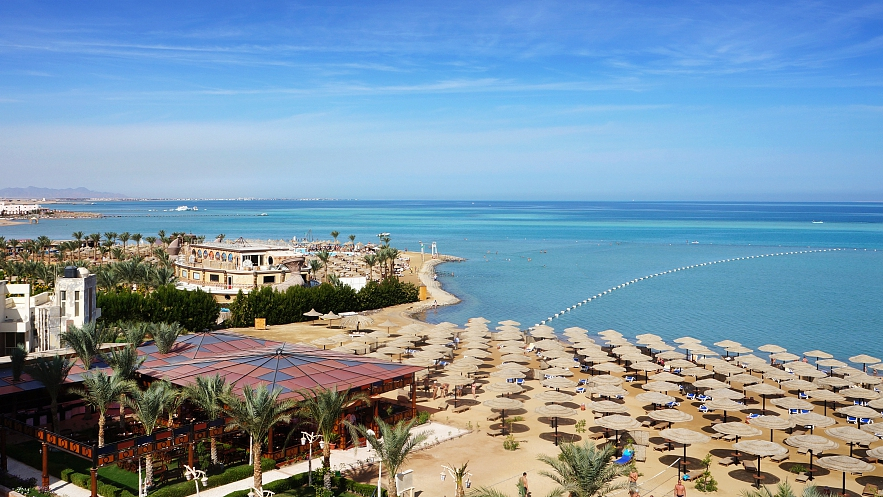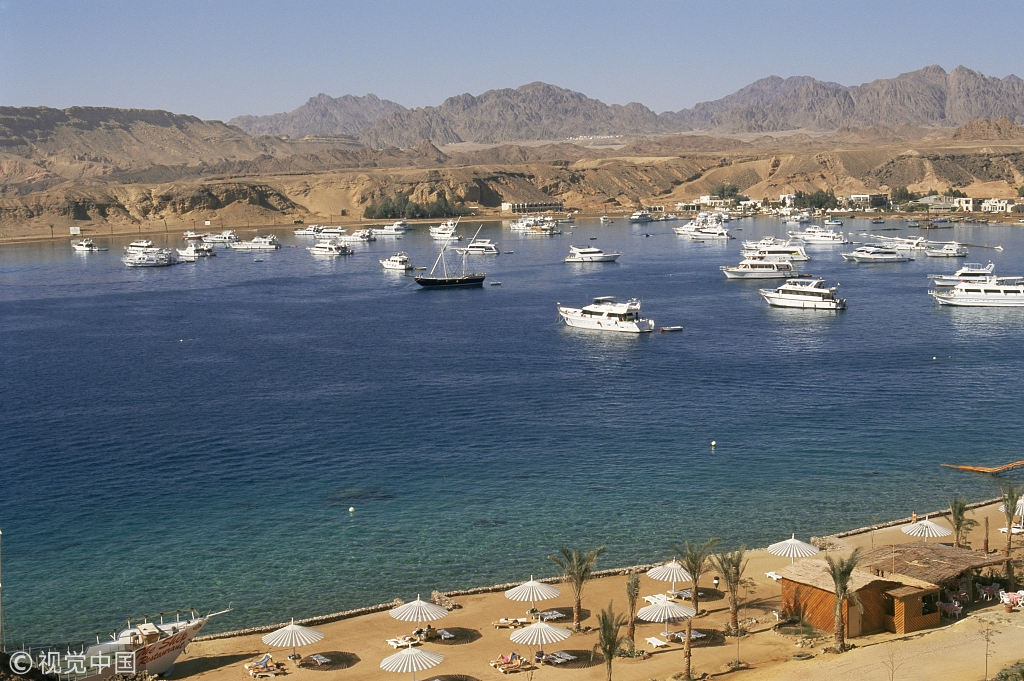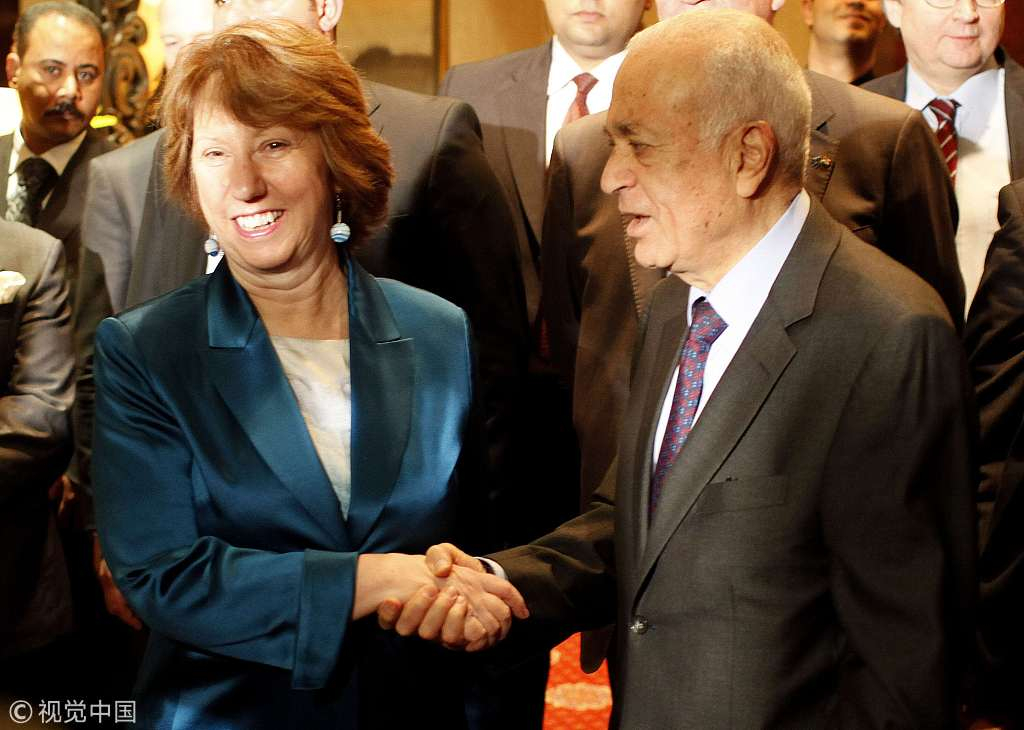
Opinion
08:00, 24-Feb-2019
Opinion: EU-Arab Summit: Moving beyond migration
Sayed Attia

Editor's note: Sayed Attia is an international trade expert based in Egypt. The article reflects the author's opinion, and not necessarily the views of CGTN.
Bringing together heads of state and government from the EU and the Arab League for the first time, the two-day EU-Arab League summit begins February 24 in Egypt.
Arab and European leaders will seek to strengthen Arab-European ties and address a wide range of issues and common challenges, including migration and border security in the region.
Despite their geographical proximity and historical bonds, the summit is the first between the two parties and comes amid a set of challenges and developments that made the dialogue between the two sides an imperative necessity.

The harbor in Sharm El Sheikh, Egypt. /VCG Photo
The harbor in Sharm El Sheikh, Egypt. /VCG Photo
The summit will provide the two parties with an opportunity to confront new challenges and realities in the region and to find new approaches and frameworks for cementing partnerships between the two sides.
Europeans and Arabs have a long and rich history of cultural, economic, commercial and political exchanges. This, together with the geographical proximity and interdependence, has contributed to institutionalize a strong relationship between the EU and the League of Arab States (LAS).
Within this framework, the common aim is to develop closer cooperation to realize their shared aspirations to ensure peace, security and prosperity in both regions. Arab and EU officials hope that the remarkable summit will be part of a broader push to forge a new European-Arab alliance to address common challenges and strengthen ties. However, holding summits is not a guarantor of realizing all expectations.
For Europe, illegal migration is the main concern and the development in the Arab region may not be a priority at all. For Europe, the exacerbation of the migration crisis over the last few years has led to deep divisions among EU members and has fostered the rise to power of right-wing nationalist and populist parties and movements in some European countries that are strongly opposed to immigration and want to close their borders to people from Africa and Middle East.
However, there are European voices that see some benefit of migration. In this regard, the Spanish Minister of Foreign Affairs Josep Borrel wrote an article published by Egypt's English newspaper, Al Ahram Weekly, saying "that migration can be an asset for offsetting population loss and for revitalizing the workforce, as well as for ensuring the sustainability of pension systems and building a multicultural and dynamic society, unless Europe want to close its doors and to be a continent of white, elderly and dependent people.”
It seems that the key motive behind holding this summit now is that there are many worrying topics emanating from the framework of rising geopolitical tensions, including migration, terrorism, regional conflict, the EU's internal divisions and state fragmentation in the Middle East.

Arab League Secretary General Nabil al-Arabi (R) greets EU foreign policy chief Catherine Ashton before their meeting in Cairo, April 10, 2014. /VCG Photo
Arab League Secretary General Nabil al-Arabi (R) greets EU foreign policy chief Catherine Ashton before their meeting in Cairo, April 10, 2014. /VCG Photo
The Arab side is working on an agenda that cement political stability and economic development in Arab countries as well as collective action in key priority areas. Arab countries should make it clear that the summit is about more than just migration and is part of a broader push to build closer ties between Europe and Arab countries.
It is high time to change the European dogma about the Arab world. For many Europeans, the Arab world is seen, at best, as an oil well and a huge market, at worst, as a turbulent and dangerous environment.
Thus access to oil, market penetration and security interests have largely driven European policies towards the region. Under different denominations and umbrellas, European policies have pursued the same objectives: energy, market and security.
I see that the best formula for cooperation between the EU and the Arab world is win-win cooperation, the cooperation that achieves the needs of each party. Europe's main concern is to control the illegal migration from the Arab world without exerting the due homework towards the development in the Arab world.
Illegal migration will automatically stop with the realization of development in the Southern Mediterranean. The continuing conviction that the Arab world is the source of oil and market and the source of illegal migration and terrorism will not contribute to establishing a solid ground for cooperation in future.
As for the Arab world, I think that Arab states will cooperate with countries and regions on the basis of mutual benefits and equality. Europe is no longer one of the limited choices available for Arab countries.
The Arab world needs to open to Asia, particularly with China. China and the Arab world have created a forum to cement their relations in order to enhance their cooperation in all fields.
(If you want to contribute and have specific expertise, please contact us at opinions@cgtn.com.)

SITEMAP
Copyright © 2018 CGTN. Beijing ICP prepared NO.16065310-3
Copyright © 2018 CGTN. Beijing ICP prepared NO.16065310-3